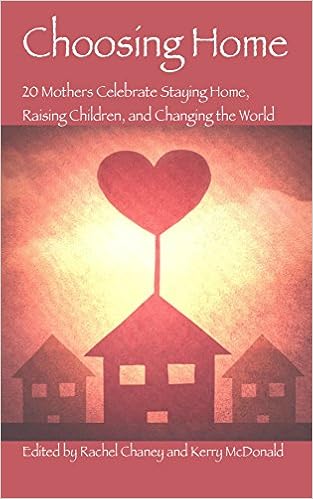 A reader asked recently if I could share some insights on how to make the leap from homeschooling to unschooling.
A reader asked recently if I could share some insights on how to make the leap from homeschooling to unschooling. Put simply, unschooling means not following a set curriculum and instead allowing childhood learning to be self-directed. There is no coercion, no top-down expectations for what a child should know and when, no arbitrary determination of subjects to be covered in a specific way at a specific time with a specific outcome. There is no "school-at-home." There is no forced learning, even if done ever so gently.
With unschooling, there is an underlying belief that children naturally learn. As my colleague at Alternatives To School, Dr. Peter Gray, writes: "When young people in our culture are granted the freedom and opportunity to educate themselves, outside of the boundaries of traditional school, they generally do so fully and joyfully. Through their everyday engagement with life, and especially through their free play and exploration, they acquire the skills, knowledge and values needed for success in our culture."
When we force a child to do something, to learn something, because we as grown-ups think it is useful or important, we can diminish--however unintentionally--a child's natural curiosity, natural drive to discover and create. This process of coercion, even when done gently and with the best intentions, can condition a child to become a passive onlooker in his own education rather than an active leader of his own life. It is hard to love something you are forced to do. It is hard to feel ownership of something when someone else owns it.
Music is a perfect example. Some of our culture's most talented musicians were self-taught and self-driven, developing an appreciation for music and performance and continuous improvement because they were in charge of their own path, their own learning, their own playing. They weren't prompted to select an instrument, cajoled to practice, forced to take lessons, made to perform in recitals. They found their way to music because it was their passion, their gift, and they taught themselves while gathering inspiration, guidance and instruction from others along the way.
Challenge Assumptions
Fundamentally, unschooling means letting go of the notion that learning is something that happens to someone, and instead embracing the idea that learning is something we humans naturally do. It means letting go of the notion that we are a child's teacher, and instead recognizing our essential role as a facilitator of our child's natural learning. Our child directs his own path, follows his own interests, while we as parents provide the time, space and resources for natural learning to occur. Unschooling means letting go of the prominent paradigm of education as schooling, and instead embracing the profound idea of education as whole-life learning.
Once we acknowledge the power and influence of self-directed learning, the philosophy of unschooling unfolds rather easily. We see our role as a facilitator of our children's own learning, not as their teacher. For instance, we unschooling parents accompany our young children to the library and encourage them to gather as many books as they want, and then we make the time and space to read, read, read -- to them and with them and alongside them, pursuing whatever topics or ideas they choose.
Unschoolers recognize the limitations of packaged curriculum and the message it sends to our children, however subtly, that they are not in charge of their own learning. We instead acknowledge that living and learning are constant and inseparable, and allow our children to learn as they live--as easily and effortlessly and continuously as they breathe--without set times for learning, without set activities and expectations, without coercion and compulsion.
We trust our children's natural, innate capacity to explore and master the tools of their culture in their own way and in their own time--just as they learned to roll and crawl and walk and talk in their own way, in their own time. Some children learn to roll sooner than others; some children learn to read sooner than others; some children learn to multiply sooner than others--and therein lies the great sea of human difference that should be celebrated and encouraged, not feared and controlled.
Connect
On a practical level, it is helpful and empowering to find a community of like-minded families who share your views on unschooling and natural, self-directed learning. While online unschooling communities are plentiful, and social media outlets can facilitate connections, building personal relationships with other parents in your community who share your worldview can be enormously uplifting. In urban areas like mine, it can be easier to find such kindred spirits and to take the important steps toward forging lasting friendships that nourish and nurture us.
But even in less-populated areas where unschooling may not be so prevalent or accepted, it is possible to find your "tribe." Sometimes finding this tribe may involve looking outside of the homeschooling community. Many families, mine included, found their way to unschooling as a natural extension of their Attachment Parenting/gentle parenting philosophy. Identifying local La Leche League meet-ups, Holistic Mom groups, or AP/Natural Parenting networks can offer a great way to meet similarly focused parents. And if such groups don't exist in your area, it is always possible to start one! You might be surprised at how many other families are looking for such an outlet. Finally, I would add that quality trumps quantity. You don't necessarily need to find dozens of families who share your natural learning philosophy. One or two good friends--kindred spirits--can be a wonderful gift.
Read
There are many excellent resources available to families looking for more insight into unschooling and the philosophy of self-directed learning. If you haven't already, check out Alternatives To School.com for research and information on self-directed learning, as well as the excellent articles at Life Learning Magazine. And gather these gems at your local library or bookstore to get you started on your unschooling journey:
- Free To Learn, by Dr. Peter Gray
- Free-Range Learning, by Laura Grace Weldon
- The Unschooling Unmanual, by Jan Hunt, et al
- How Children Learn, by John Holt
- The Big Book of Unschooling, by Sandra Dodd
- Home Grown, by Ben Hewitt























Kerry, I'm curious as to how you think unschooling fits into a group experience... like music, theater or sports.
ReplyDeleteA child teaching herself music at home is free to learn and play as she pleases. She can also make music with friends in a way that's totally democratic and collaborative. But if that child decides to join a local symphony, she goes from having full autonomy over the experience to a certain amount of authoritarianism. Right? As in, if the symphony leader says, we're all practicing scales today, the self-taught musician has to follow along even if she never did scales when learning at home and finds them terribly boring.
My son might be an example vis-a-vis basketball. It could be argued that he's largely self-taught after hours and hours emulating his favorite NBA stars in the driveway. But he's not going to get very far, even at YMCA level basketball, if he doesn't abide by what the coach has to say about dribbling, passing and other fundamentals of the game.
Am I off base to think that there's a conflict between the unschooling ethos and some level of authoritarianism in group pursuits?
Amy, this is an excellent point. Thanks so much for bringing it up.
DeleteSelf-directed learners, when revealing and pursuing their passions, will invariably realize that if they want to master their skills they will need to seek out additional resources, opportunities and instruction. The difference is that this is self-directed and not imposed arbitrarily by others. If your son is passionate about basketball and wants to advance his skills, he will quickly realize the need to gain coaching and work on a team and practice often. Or maybe, once he does, he will realize that it's not his passion after all. This is not unlike how most adults learn, frankly. When I want to learn a new skill, I seek information, inspiration and instruction--and I practice, practice, practice. I think we should trust our children to do the same.
Good read! As to Amy's question, I once wrote this:
ReplyDeleteThere are two kids in the same group in an aikido dojo. Aikido, like most Japanese martial arts, is rigorously structured. Every motion is dictated by the sensei. Practically every breath is choreographed. It is indisputably a very controlled experience. Superficially, an observer might say that both kids are having the same experience. An equal experience, if you're brave enough to use that word after my previous comments about it; but, of course, they're not having an equal experience by any stretch of the imagination. It's not even a similar experience in any meaningful sense.
Kid one, Mac, is there because his folks consider him undisciplined and they're forcing him to attend to improve himself. He hates being there. He hates his folks for forcing him to go. He hates wearing the stupid, strange outfits. He hates the ranking system which is even more blatant than that of his school classes because you wear a colored belt which precisely describes your status at the dojo. He resents every stinking minute he has to be there. Mac is being taught aikido but he ain't learning a damned thing, if he can possibly avoid it.
Kid two, Leda, is there because she's heard about aikido from reading manga and decided it was something she wanted to learn more about it. She finds the gi interesting compared to her usual T-shirt couture and looks forward to improving her skills to the point where she can also wear the hakama of senior practitioners. The ranking system is something she's unused to but she has no strong feelings about it; it's just another new and intriguing thing. She enjoys the novelty of the experience and delights in learning the complex physical skills. She looks forward to progressing in this odd-but-fascinating art. Leda is learning aikido and she's unschooling, despite the abstraction that she's in a rigorously structured class in a highly-disciplined martial art.
Their experiences are clearly neither identical nor equal and I don't see them as evincing any realistic similarity, either. Despite the superficial sameness to the casual observer, these two experiences are utterly antithetic. Coercion vs. choice is the difference.
How does one meet the requirements of the Ministry of Education (or equivalent in different countries) to demonstrate learning and teaching "at least as much" as they would be getting in a formal school, keeping records that demonstrate they are covering the curriculum? We've just started homeschooling but it's very random at the moment! My boy is 12 and has ASD and anxiety.
ReplyDelete